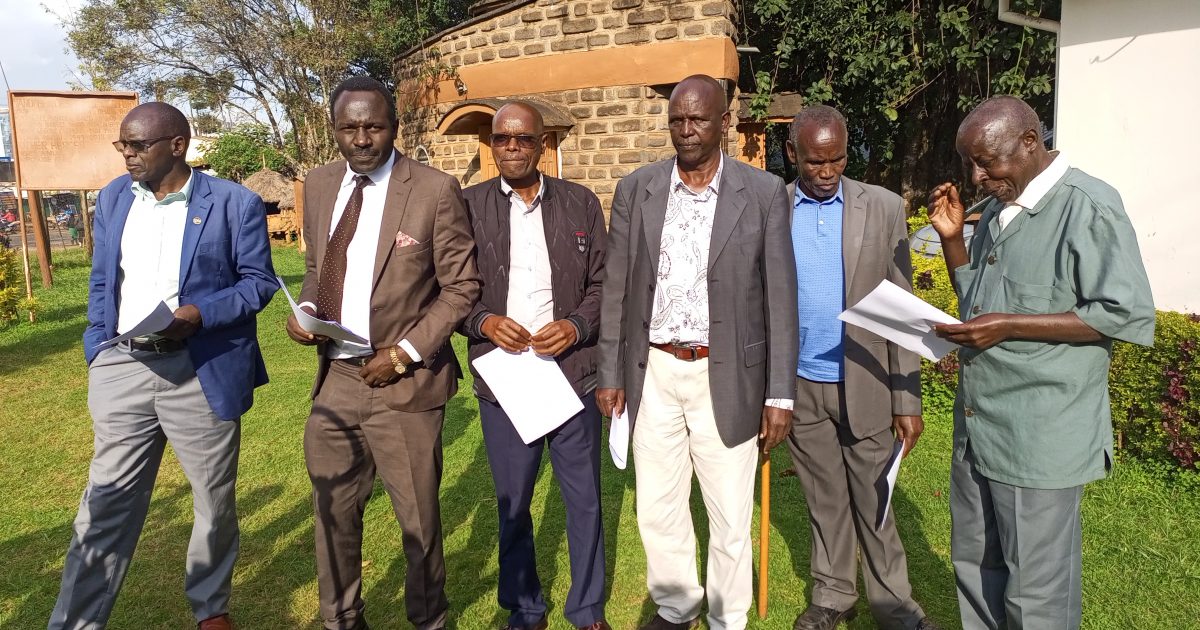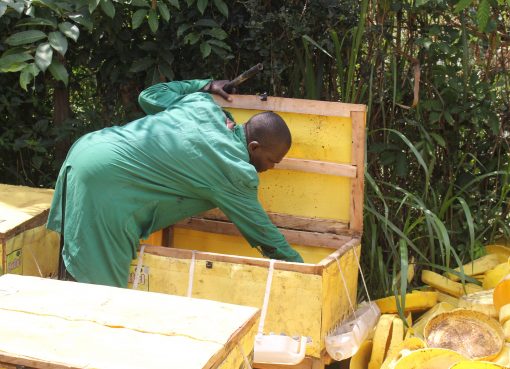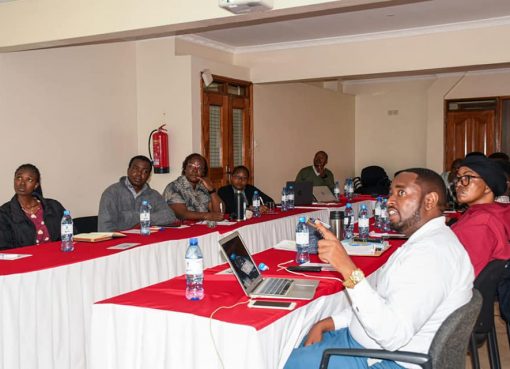Elders drawn from Talai Community and the Koitalel council of leaders in Nandi County now want the British government to make a public apology for atrocities meted on the community during the colonial era.
The elders led by Ambrose Tarus also demanded that United Kingdom compensate the locals when they congregated to pay tribute to the late Queen Elizabeth of England II during her burial after staying at the throne of the empire for close to seven decades.
The community claim that they suffered serious human rights abuses, heinous acts and atrocities perpetrated by the British on orders of the Queen’s great grandfather King Edward VII.
According to a statement read by Tarus, the Talai community in particular became a patent target of the colonial administration and consequently endured decades of abuse and neglect that neither received recognition nor redress.
Speaking at the Koitalel Samoei Museum grounds Tarus who is one of the Koitalel cabinet member said the death of Koitalel, who was executed in cold blood together with 300 others at a meeting venue and another 1,117 people in the course of that fateful day continues to haunt the people of Nandi and looms large in their affairs.
“It is known to us that the said King Edward VII signed the order to kill Koitalel, the leader of the Nandi which was ably executed by the commissioner Sir Donald Stewart together with his successor Sir James Hayes-Sadler,” noted Tarus while explaining why they should be compensated as Koitale descendants.
Koitalel arap Samoei led a vicious resistance against British rule in Kenya. This led to an intelligence officer Richard Meinertzhagen invited Koitalel to a peace truce meeting. When Orkoiyot arap Samoei stretched his hand in greeting, Meinertzhagen shot him at point blank rang thereby killing the resistance.
John Bii a member of the cabinet observed that in the aftermath of the death of Koitalel a good portion of the Nandi in particular the Kamelilo, Kaochepkendi and Kaapoch were forced to leave their beautiful valley in Tinderet and move to the highlands of Kabiyet some 100 kilometers away.
He noted that 16,230 herds of cattle plus 36,000 goats and sheep were rounded off from the Nandi and later taken to auction market where Thomas Wood, a Nairobi auctioneer was tasked to sell off in Naivasha and in March 1906 he published in the East African Standard that he sold 865 Nandi cattle for 65,912.90 rupees.
“According to our calculations, the animals confiscated from the Nandi amounts to more than Sh3.5 billion. We demand that this amount of money be given to us as compensation for the loss of livestock not to mention the value of human life lost at the time which is agreeably unquantifiable,” he stated.
Some of the human rights violations suffered by the victims include forceful expropriation of traditional land, the continued exploitation of the said land by British multinationals, foreign eviction from native land, relocation of Nandi to Uganda and Tanganyika, exposure to European diseases such as syphilis, gonorrhea, smallpox and chickenpox, detention without trial among others.
As per the statement led by the cabinet the descendants are demanding a public apology to the community and families affected, a total of Sh150 billion as compensation for the confiscated property as well as the immediate return of Koitalel Samaoei’s head so that the community can enjoy peace.
By Ruth Mainye





